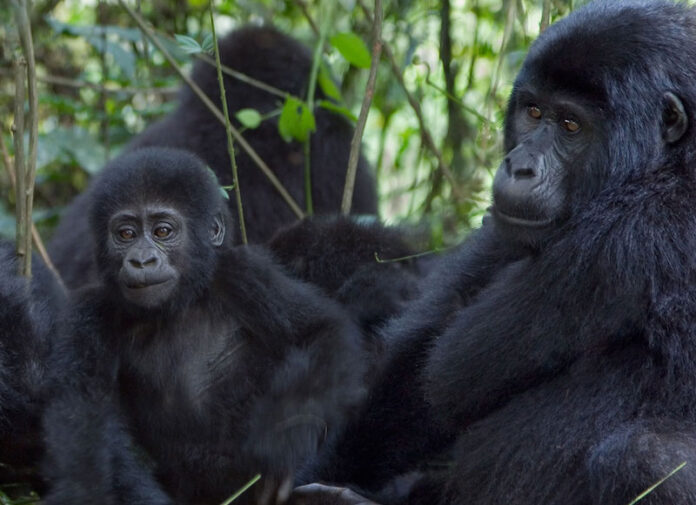Tourists traveling to Uganda’s Bwindi Impenetrable National Park have often been greeted by the mesmerizing sight of gorillas in their natural habitat. However, behind the captivating scenes, the Uganda Wildlife Authority (UWA) has been grappling with a major financial scandal.
The UWA recently announced an extensive probe into a fraud that has beleaguered its operations for several years. Preliminary reports suggest that the entity may have lost over $3 million (Shs11.2 billion) through deceptive gorilla permit transactions.
While the investigation unfolds, 16 individuals associated with the scam have been suspended and several have been arrested. Insiders, speaking on conditions of anonymity to the Daily Monitor, revealed that those embroiled in the controversy include a reservation department employee who is the son of a board member and an official from the ICT department. There are also key figures from both the Bwindi and Mgahinga national parks implicated in the misconduct.
Hangi Bashir, the manager of communications at UWA, mentioned, “We’ve unearthed suspected fraudulent sales of counterfeit gorilla permits through manipulation of the gorilla booking system. The management will not shy away from taking stern actions against anyone found guilty.”
One major shift in operations that potentially escalated the problem was the suspension of the cashless system that UWA had initiated in 2014 to counter fraud and theft. This system, once suspended, was replaced with two subsequent systems, both of which failed. The ensuing decision to craft an internal system for bookings inadvertently introduced exploitable vulnerabilities.
A whistleblower claimed that the system operators, in collusion with others, fabricated a mechanism to embezzle funds into personal accounts. Allegedly, they manipulated the system to produce up to 100 tickets, yet only declared one, pocketing the profits from the remaining 99.
This massive discrepancy was identified when auditors noticed a stark mismatch between visitor numbers at Mgahinga and Bwindi gorilla tracking sites and the revenue submitted.
Mr. Bashir acknowledged their findings, stating, “We’ve noticed irregularities in the booking system. So far, 11 staff members suspected of involvement in this potential fraud have been suspended for a comprehensive investigation.”
The investigation ambit will also encompass tour operators who might be complicit. Insiders suggest that some tour operators might have exploited the issuance of discounted complimentary tickets, though the full extent of their involvement remains uncertain.
Mr. Bashir stressed on the importance of this revenue stream, noting, “Income from gorilla tourism is pivotal for Uganda’s wildlife conservation efforts. We’re dedicated to preserving the integrity of the permit booking system.”
The cashless system, implemented in 2014, was originally meant to avert fraud and protect both UWA staff and tourists from potential robberies and assaults during cash transports. While initially met with resistance by tour operators, it was soon adopted and praised for its efficiency. However, a controversial decision to abandon this system for other flawed ones led to significant financial loopholes.
This scandal underscores the need for rigorous financial oversight, especially in sectors crucial for national identity and conservation efforts. As Uganda grapples with the ramifications of this fraud, one hopes it strengthens its resolve to safeguard its wildlife and tourism industry.

